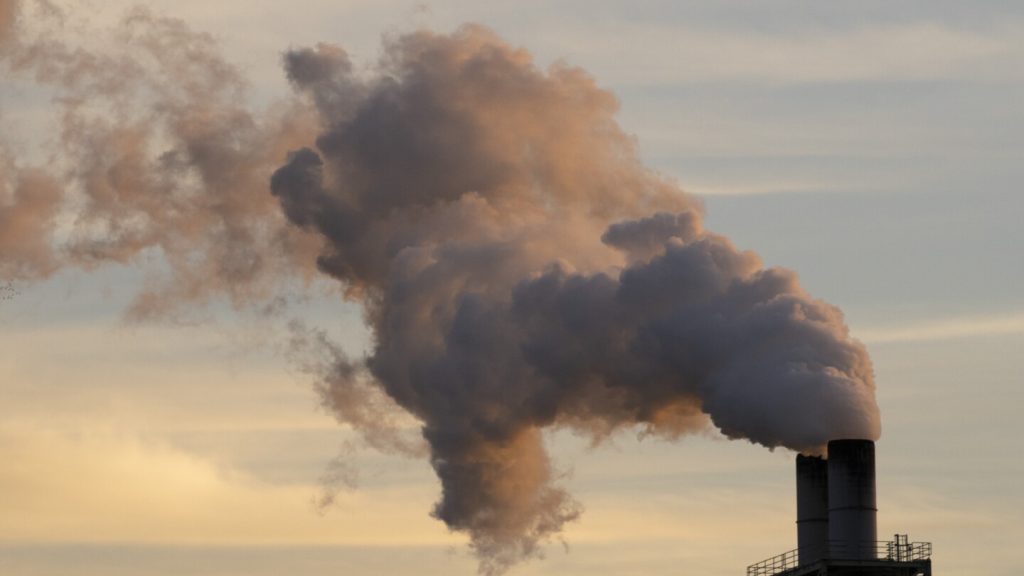A contentious battle is brewing in Washington state over the fate of the Climate Commitment Act, a progressive climate policy that aims to reduce carbon emissions and fund climate programs. The law, which took effect less than two years ago, requires businesses to purchase allowances for their carbon emissions and has raised concerns about increased energy and gas costs in the state. Supporters of the policy argue that a repeal would not guarantee lower costs and could jeopardize billions of dollars in state revenue earmarked for various programs related to air quality, fish habitat, wildfire prevention, and clean energy.
Opponents of the law, led by the group Let’s Go Washington, claim that the carbon pricing program has driven up consumer gasoline costs by as much as 53 cents per gallon. They have staged events at fuel stations across the state to rally support for repealing what they call a “hidden gas tax.” The average price of regular gas has fluctuated since the auctions began, reaching a high of $5.13 per gallon before falling to $4.05 this month. Let’s Go Washington argues that the increased costs impact the prices of everyday goods that rely on transportation, making everything more expensive for consumers.
Supporters of carbon pricing highlight the importance of the revenue generated by the program for funding critical initiatives, including support for Native American tribes in addressing climate change. The Office of Financial Management estimates that repealing the Climate Commitment Act would result in the loss of $758 million in state revenue in the next fiscal year, with a total loss of $3.1 billion over the following four years. Lawmakers approved a budget funded by carbon pricing revenue for fiscal year 2025, with funding for various programs contingent on the continued success of the policy.
Washington’s carbon pricing program was the second of its kind in the United States, following California’s lead. Repealing the law would not only impact the state’s emission reduction goals but could also hinder efforts to collaborate with other states on similar programs. A diverse coalition, including tribes, tech companies, environmental groups, and even a fossil fuel company like BP America, is advocating for the retention of the policy. BP America, a participant in the auctions, has contributed over $2 million to the campaign to keep the law intact, citing the need for regulatory certainty in their business planning.
Supporters of the law have raised more than $16 million to advocate for its preservation, far exceeding the funds raised by Let’s Go Washington for their repeal efforts. The initiative to repeal the Climate Commitment Act, known as Initiative 2117, has garnered significant support, with over 400,000 signatures submitted to place it on the November ballot. The outcome of the upcoming election will have far-reaching implications for Washington’s climate policies, revenue streams, and efforts to combat climate change on a state level. Voters will be faced with a crucial decision on whether to uphold or repeal this groundbreaking legislation that has put Washington at the forefront of climate action in the United States.


